SouthCoast Wonders: Doctor Know Nothing, the incredible life of Fall River's first mayor
FALL RIVER — Over its 169-year history as a city, Fall River has elected 40 different men as mayor — and some have fascinating life stories beyond the sixth-floor office.
Some ex-mayors, like Carlton Viveiros or Edward Lambert, went on to state jobs — Viveiros as a clerk magistrate in Housing Court, and Lambert with positions in the Department of Conservation and Recreation and UMass. Other mayors have taken more unexpected turns, like William Flanagan becoming a successful marijuana dispensary owner. And one notable ex-mayor is behind bars at the moment.
This year’s mayoral election, scheduled for Nov. 7, pits Mayor Paul Coogan against former district attorney and mayor Sam Sutter. Coogan, a longtime educator, is looking to extend his time in office to a third term. Sutter, an attorney, is aiming to return to the position after an eight-year gap.
But who started it all? Let’s learn something about a Know-Nothing.
What's in our name? We're not the only Fall River out there. Let's take a trip to 5 others
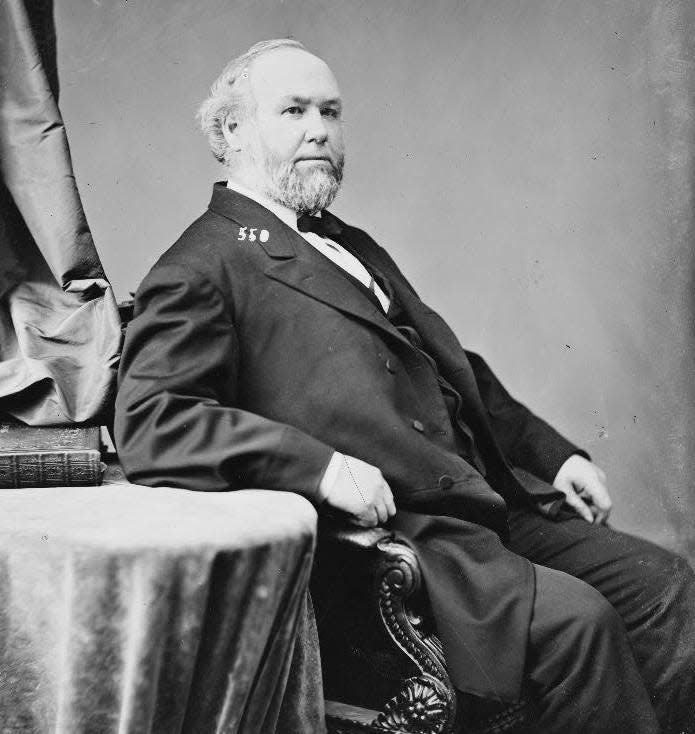
Who was Fall River's first mayor?
James Buffinton was born in Fall River in 1817 near the area of Turner Park and grew up both here and in Swansea. He was educated in Providence at what’s now Moses Brown School. At the time, Fall River was a town governed by a Board of Selectmen.
Buffinton studied medicine in hopes of becoming a doctor — but without money to earn a degree, he became a teacher in Westport and Dartmouth. While there, he heard the call of the sea and took a job as a ship’s doctor on a whaling voyage. This was ideal. On a whaling ship in the early 19th century, a degree was unimportant, as long as he could dispense narcotics and cut off broken limbs from time to time.
Upon his return, Buffinton became a druggist. Throughout the late 1830s and ‘40s, he owned a shop on South Main Street downtown, and advertised all sorts of potions that sound bizarre today: compound creosote drops for toothaches, Buffalo oil, “Egyptian depilatory for removing superfluous hair,” coral toothpaste, sun fish oil to cure rheumatism and stiff joints, and “vegetable pulmonary balsam” for “asthma, pleurisy, spitting of blood, whooping cough.”
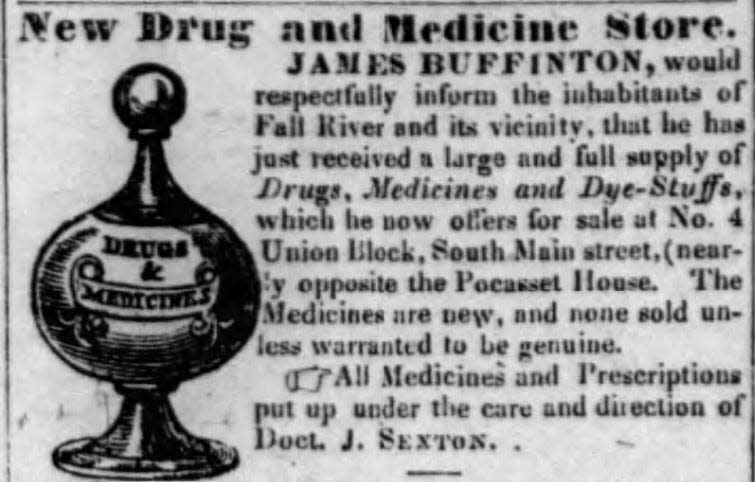
His handy way with medicine was likely why, in 1846, he was elected Fall River’s health officer, the start of his long government career.
In 1851, Buffinton was elected to the town’s Board of Selectmen, and was popular enough to be re-elected every year. When Fall River incorporated as a city in 1854, a plurality of voters elected him the first mayor.
SouthCoast Wonders: How did the Midwest end up in a Fall River neighborhood?
The rise of the Know-Nothings across the US and in Fall River
Local elections are functionally nonpartisan these days. But Buffinton was elected as a member of the American Party — or, the Know-Nothings, an anti-immigrant, anti-Catholic, American nativist political movement.
Fueled in part by fear of a massive influx of Irish fleeing the Great Potato Famine and German immigrants fleeing revolution, the xenophobic Know-Nothings grew from a secret society to sweep through the national political scene like a fever, spreading wild conspiracy theories about the pope and Catholic immigrants that often led to violence and, in Charlestown, the raid and torching of a convent.
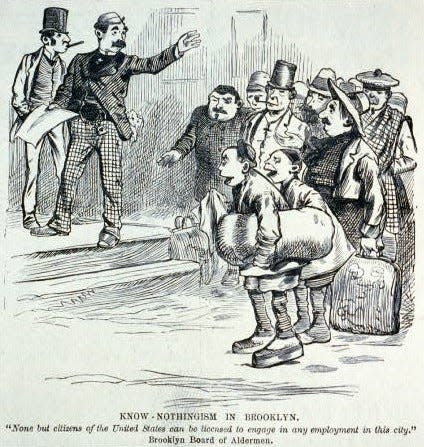
As a party, the Know-Nothings promoted policies that mixed the progressive, like opposing slavery and improving public schools and women’s rights, with the brazenly bigoted, like attempting to institute a 21-year waiting period for immigrants to vote and trying to bar all Catholics from public office.
Buffinton himself opposed slavery, but his stance on immigrants and Catholics is unrecorded. Newspaper accounts show he attended and delivered a well-received speech at a Know-Nothing political convention in Philadelphia in 1855, where he represented Fall River as mayor.
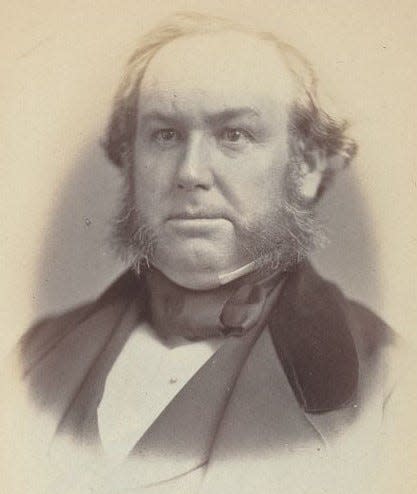
Like Coogan, Buffinton’s time as mayor was partially spent dealing with a pandemic — in 1854 and ‘55, Fall River was hit with an epidemic of Asiatic cholera. Buffinton reportedly used his medical training to visit and aid the sick. At a meeting in 1854, Buffinton also claimed “the drinking of intoxicating liquors was the principal cause of the disease.” He mentioned it in his 1855 inauguration speech, too. A major plank in the Know-Nothings' platform: they hated alcohol, partially because they associated whiskey and beer with the Irish and Germans.
Life after being mayor of Fall River
At the time, Fall River held mayoral elections each year. Buffinton was re-elected mayor in 1855, but lasted only a short time when he resigned to take over a seat in the U.S. House of Representatives — at first as a Know-Nothing, then in 1857 and thereafter as a Republican, when the Know-Nothings fizzled out.
The home front: Was Fall River really the site of a Revolutionary War battle?
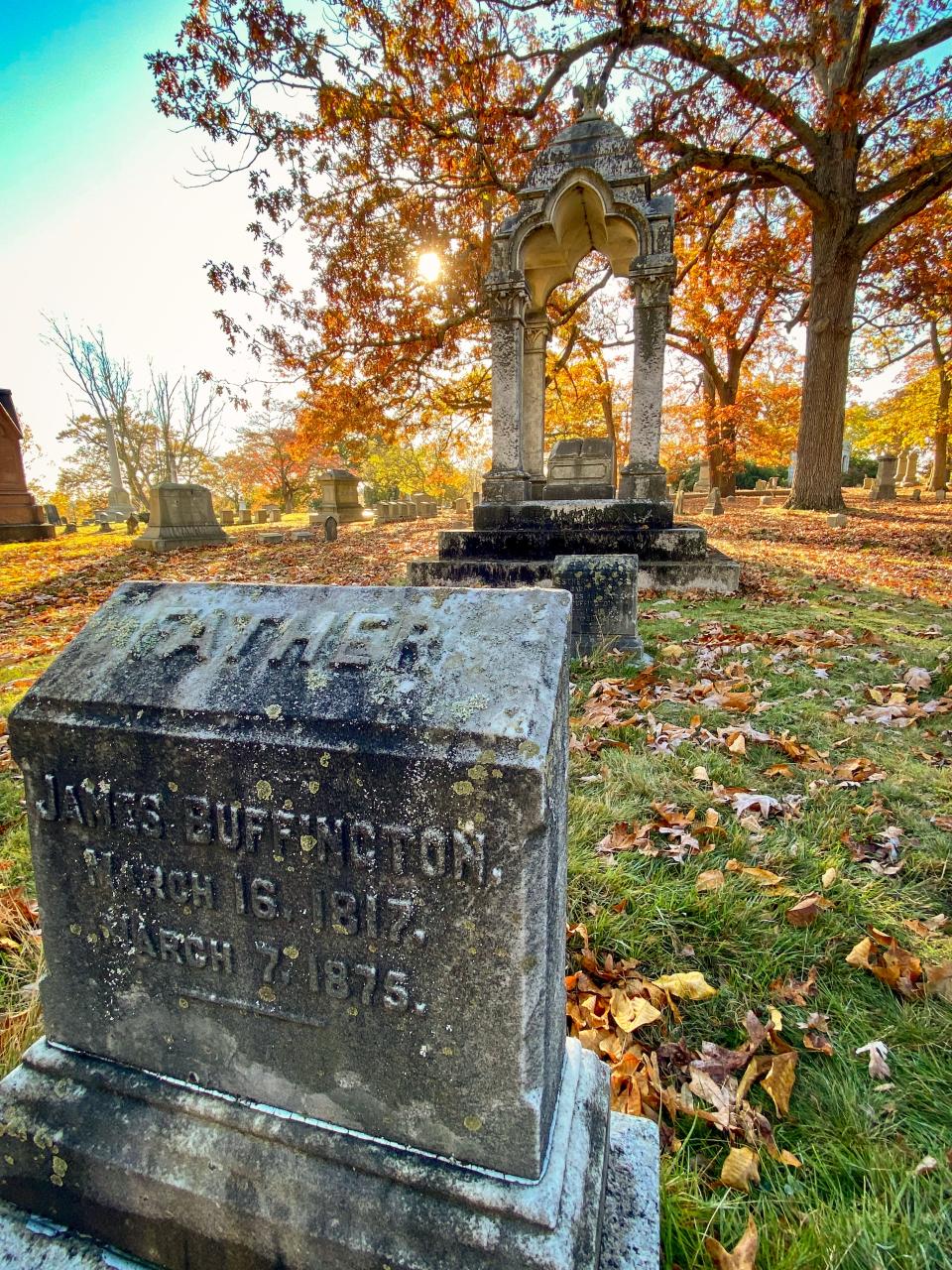
When the Civil War broke out in April 1861, Buffinton was caught up in the patriotic spirit to preserve the union. He enlisted as a private in Company A of the Seventh Massachusetts Infantry Volunteers, even though he was serving as a congressman and 44 years old. A few months later, Secretary of War Simon Cameron discharged Buffinton, telling him he’d do more good as a congressman than a soldier.
Buffinton resigned from Congress in 1863 to work for the brand-new Internal Revenue Service, which was formed a year earlier. His job: collecting what became America’s first-ever income tax, put in place to help pay for the Civil War.
He returned to Congress in 1869 and served there amid declining health until May 1875, when he came home to Fall River for an adjournment. He’d told his family he wanted to die in the house he was born in, at 10 Locust St.
“On reaching home, Mr. Buffinton walked into the house and went directly upstairs to a room which had been fitted up for him,” and laid down and died. Whatever else one could say about Buffinton, he kept his word. He's buried in Oak Grove Cemetery.
Dan Medeiros can be reached at dmedeiros@heraldnews.com. Support local journalism by purchasing a digital or print subscription to The Herald News today.
This article originally appeared on The Herald News: Fall River's first mayor: Buffinton was pharmacist, congressman

